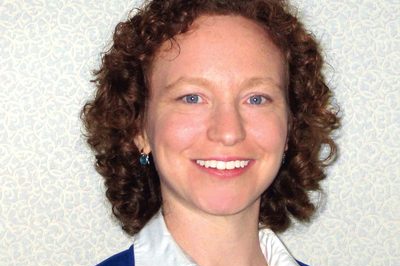Sperm donors are in. The upcoming feature film “The Kids Are All Right” stars Annette Bening and Julianne Moore as lesbian moms whose children go in search of their donor. The new memoir “Three Wishes” is by three straight women who almost — but not quite — used the same vial of donated sperm, but then passed it on to a friend. The New York Times reviewed “Three Wishes” in its Fashion and Style section, from which I can only conclude that sperm donors are the new “must-have” fashion accessory.
The NYT article also pointed out two other new movies involving straight women and sperm donors: “The Back-Up Plan,” starring Jennifer Lopez, released in April, and “The Switch,” starring Jennifer Aniston, due out in August. The original title of “The Switch” was “The Baster.” One can only wonder why they changed the name: Too obscure? Too lesbian-associated?
That brings us to a key observation. Assisted reproduction using a sperm donor has long been associated almost exclusively with lesbians. The search for a sperm donor has been a staple of lesbian portrayals on television. Witness characters on “NYPD Blue,” “Cashmere Mafia,” “Queer As Folk,” “The L Word,” “If These Walls Could Talk 2,” “Exes and Ohs” and “Rick and Steve.”
Why this fascination with sperm donors? We lesbians create our families in other ways,too. Some of us have children from previous relationships; some of us adopt. My partner and I used a donor — but while deciding which one to use was an intense process, it soon paled next to the other concerns of parenthood.
My best guess as to why the media focuses on sperm donors is that, to many people, they represent the major obvious difference between lesbian families and straight ones. Yes, there are significant legal differences, but that gets into a political realm that dramas and sitcoms have been loath to touch. To focus on everyday parenting, where same-sex couples and straight ones are really not all that different, would seem to remove any media interest in showing lesbian parents as opposed to straight ones.
With several new movies about straight women and donors, however, turkey basters may no longer be the symbol of lesbian motherhood they once were. That’s not a bad thing. Modern families, LGBT and not, are created in many ways, and the more we can show that, the less strange LGBT families will seem.
Some have recognized this connection before. Louise Sloan, in her 2007 guide “Knock Yourself Up,” offers advice to both lesbian and straight single moms by choice. Sloan herself is a single mom by choice — and a lesbian — but she has written one of the only parenting books that speaks to both straight and lesbian women even-handedly.
Sloan discusses choosing a donor, getting pregnant and coping as a single mom, but also — and importantly — handling children’s questions about their biological origins. Children will have questions, no matter how secure their relationships with their parents, if only to fill in that blank in their self-images. Evidence shows that most of the time, things will not turn out the way they do in “The Kids Are All Right,” with the sperm donor invited over and falling for one of the moms.
A book that delves even more deeply into the relationships among donors, mothers and children is “And Baby Makes More: Known Donors, Queer Parents and Our Unexpected Families,” edited by Susan Goldberg and Chloe Brushwood Rose (2009), a collection of essays by lesbian mothers who used known donors, the donors and the adult children of those families. The authors tackle issues such as the degree of involvement between donor and child, the role of the donor’s parents as grandparents and what to call the various people who form part of this extended family.
And hot off the presses is COLAGE’s “Donor Insemination Guide,” by Jeff DeGroot, a resource by and for youth and adults created through donor insemination. (See colage.org.)
If there is one area of parenthood in which lesbian moms may be said to specialize, it is this — even if that is an overgeneralization.
Even as we cede our (never really exclusive) claim to the turkey baster, we can take some comfort in knowing that lesbian families have made a significant contribution to parenting literature — a contribution from which both lesbian and straight families can benefit.
Dana Rudolph is the founder and publisher of Mombian (www.mombian.com), a blog and resource directory for LGBT parents.
